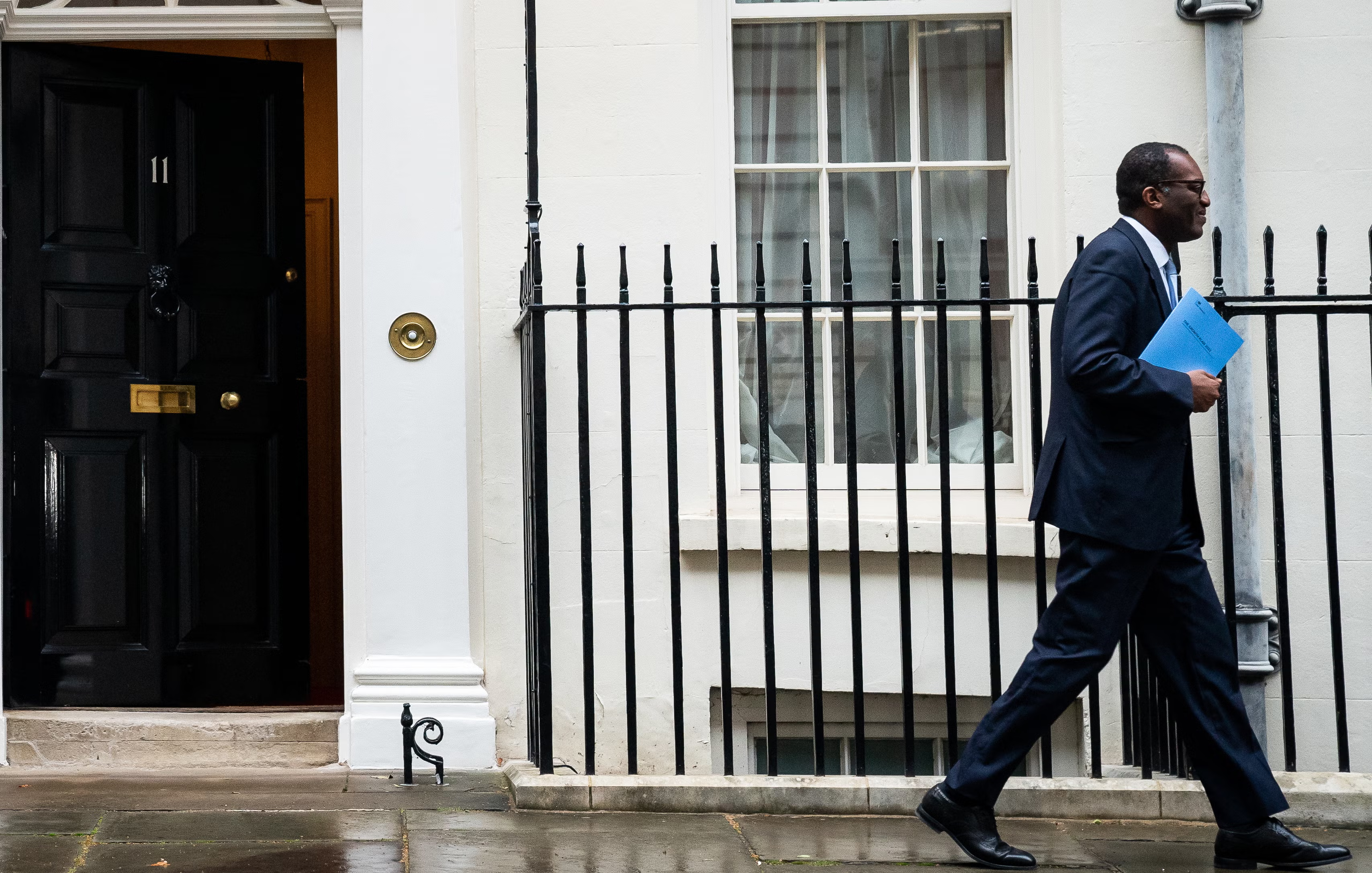At a glance: Key points from Kwasi Kwarteng’s statement on the economy
The Government wants a new approach to growth, Mr Kwarteng said, with the aim, over the medium term, to reach a trend rate of growth of 2.5%.

Your support helps us to tell the story
From reproductive rights to climate change to Big Tech, The Independent is on the ground when the story is developing. Whether it's investigating the financials of Elon Musk's pro-Trump PAC or producing our latest documentary, 'The A Word', which shines a light on the American women fighting for reproductive rights, we know how important it is to parse out the facts from the messaging.
At such a critical moment in US history, we need reporters on the ground. Your donation allows us to keep sending journalists to speak to both sides of the story.
The Independent is trusted by Americans across the entire political spectrum. And unlike many other quality news outlets, we choose not to lock Americans out of our reporting and analysis with paywalls. We believe quality journalism should be available to everyone, paid for by those who can afford it.
Your support makes all the difference.Here are the main points from Chancellor Kwasi Kwarteng’s statement on the economy in the Commons:
– Mr Kwarteng began by saying “help is coming” for people with their energy bills, and that the energy price guarantee will limit bills for the average household to £2,500.
– The Chancellor outlined Government support for businesses, telling MPs the energy bill relief scheme will reduce wholesale energy costs for all UK businesses, charities and the public sector.
– He said that the consensus among “independent forecasters” was that the Government’s energy plan “will reduce peak inflation by around five percentage points”.
– Mr Kwarteng said the Bank of England is taking further steps to control inflation, and the Government considers the Bank’s independence to be “sacrosanct”.
– The Government wants a new approach to growth, Mr Kwarteng said, with the aim, over the medium term, to reach a trend rate of growth of 2.5%.
– Mr Kwarteng said the Government will set out its fiscal approach more fully in future, and the Office for Budget Responsibility will publish an economic and fiscal forecast before the end of the year, with a second to follow in the new year.
– He said the energy package will cost £60 billion for the six months from October.
– Mr Kwarteng said there will be announcements in the coming weeks that will cover “the planning system, business regulations, childcare, immigration, agricultural productivity and digital infrastructure”.
– The Government will legislate to put new conditions on unions wanting to strike, Mr Kwarteng said, so that unions have to put pay offers to a vote.
– Mr Kwarteng said he would “accelerate reforms” to the pension charge cap, so it will no longer apply to “well-designed performance fees”.
– The Chancellor announced the Government’s plans for new low-tax “investment zones”, that will allow planning rules to be relaxed and will reduce business taxes to encourage investment.
– Mr Kwarteng confirmed plans to get rid of the cap on bankers’ bonuses and, to reaffirm the UK’s status as the world’s financial services centre, the Chancellor said he will “set out an ambitious package of regulatory reforms later in the autumn”.
– Mr Kwarteng confirmed that the planned rise in corporation tax would be cancelled, so that the UK “will have the lowest rate of corporation tax in the G20”.
– The planned alcohol duty rises will be cancelled, Mr Kwarteng said, and the Government will introduce VAT-free shopping for tourists.
– The Chancellor outlined his desire to make the tax system “simpler” and said he would “wind down” the Office of Tax Simplification.
-The Chancellor confirmed to MPs that the health and social care levy introduced by Boris Johnson’s government would be cancelled.
– The Chancellor said the health and social care levy, and other planned rises in national insurance contributions, would be cancelled from “the earliest possible moment”, November 6.
– Mr Kwarteng confirmed a cut in stamp duty from Friday, as he told the Commons “homeownership is the most common route for people to own an asset, giving them a stake in the success of our economy and society”.
– He said the top rate of income tax, the 45% rate for earnings over £150,000, is being abolished altogether.
– Mr Kwarteng said he will cut the basic rate of income tax to 19p in April 2023, one year early.